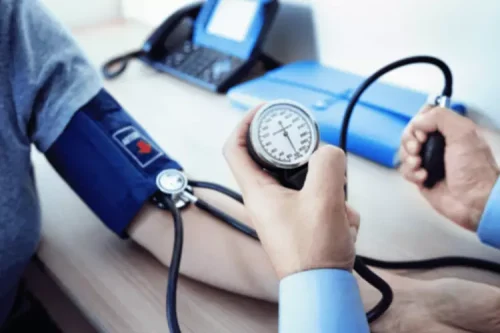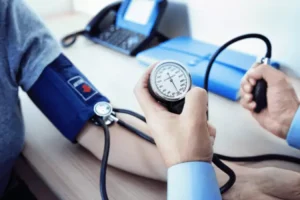
In moderate amounts, alcohol can decrease your blood’s clotting ability, leading to a thinner consistency and reduced clot formation. However, the tale of alcohol’s impact on blood clotting doesn’t end there. Antiplatelet medicines are used to stop blood clots from forming. They are a group of drugs that stop certain blood cells (called platelets) from clumping together and forming a blood clot to help stop bleeding.
Alcohol Consumption and Bleeding Risks
Understanding how alcohol and other drugs interact with Eliquis is essential. Knowing what to watch for can help you best use this medicine. In addition to drinking, restrict intake of anti-inflammatories like NSAIDs Advil or Aleve which delay clotting abilities while on Eliquis or other anticoagulants. Stop blood thinners for at least 2 days before most elective surgeries and discuss using fast-acting heparin bridging therapy to minimize procedure-related blood loss and thrombotic risks. The resulting significantly elevated bleeding risks can be life-threatening. That is why alcohol restrictions or avoidance is typically advised while on chronic anticoagulation therapy.
The Effects of Daily Alcohol Use on Atrial Fibrillation

However, anticoagulants other than Eliquis are usually preferred. This is because more is known about the safety of using certain other anticoagulants during pregnancy than what’s known about Eliquis. When your blood doesn’t flow freely, blood cells called platelets start clumping together inside your blood vessels.

Can I resume drinking alcohol after stopping Eliquis?

There haven’t been any specific reports of vitamins interacting with Eliquis. However, it’s still important to talk with your doctor or pharmacist before taking any of these products during Eliquis treatment. Before you start treatment with Eliquis, tell your doctor and pharmacist which supplements, herbs, and vitamins you take. By sharing this information with them, you may eliquis alcohol help prevent possible interactions.
Common questions about Eliquis and interactions
Some organs may tolerate small amounts of bleeding for a time without showing symptoms, while others may exhibit signs of reduced function even with minimal bleeding. Xanax is a drug that’s used to treat panic disorders and anxiety. Doctors may recommend benzodiazepines (such as Xanax) for people having hip or knee surgery.
Does alcohol thin your blood?
- However, more research is necessary to determine whether alcohol use is directly responsible for these possible heart benefits.
- Taking the antibiotic rifampin (Rifadin) with Eliquis can lower the level of Eliquis in your body.
- It is always best to consult with a healthcare professional to determine if it is safe to consume alcohol while taking Eliquis or any other medication.
- When taken this way, Eliquis should be crushed and mixed with 2 ounces (60 milliliters) of water or 5% dextrose in water.
- Large amounts of vitamin K are found in certain foods, such as green leafy vegetables.
By steering clear of grapefruit and grapefruit juice, you can help maintain safe and effective levels of Eliquis in your system. Always consult with your healthcare provider for specific advice regarding your diet and medication interactions. Both alcohol and Eliquis affect blood clotting, and when combined, their effects can be amplified. This means that even minor cuts or injuries can lead to excessive bleeding, which can be dangerous.

This can help them determine if the drug is a safe treatment option for you. If you have symptoms of a severe allergic reaction, such as swelling or trouble breathing, call 911 or your local emergency number right away. These symptoms could be life threatening and require immediate medical care. Keep reading to learn about the common, mild, and serious side effects (also called adverse effects) that Eliquis can cause. For a general overview of the drug, including details about its uses, see this article.
Cardioversion Procedure: Understanding this Procedure and Its Impact on Heart Rhythm
But older people are more likely to have medical conditions than younger people. Having certain medical conditions may increase the risk of side effects from taking Eliquis. For more information, see the “Warnings for Eliquis” section below. EHealthMe is studying from 191,727 Eliquis users for the drug’s side effects, drug interactions, effectiveness and more. Pradaxa (dabigatran) is used to prevent stroke and blood clots in patients with atrial … Heavy or chronic alcohol use can lead to unpredictable swings in the drug’s effectiveness and significantly increase bleeding complications.
Eliquis is FDA approved to treat and prevent certain types of dangerous blood clots that can block blood vessels in your body. It’s an anticoagulant drug (sometimes called a blood thinner). alcohol rehab Anticoagulants such as Eliquis make your blood less able to form clots. Stopping Eliquis before you’re supposed to can increase your risk of developing a blood clot. And if you have a type of irregular heartbeat called atrial fibrillation (AFib), stopping Eliquis can increase your risk of having a stroke.
- Animal studies have shown potential harm to the fetus, and while Eliquis has not been adequately studied in pregnant women, it’s generally recommended to avoid it unless clearly needed.
- Alcohol can also limit the liver’s ability to metabolize other compounds and the kidneys’ ability to excrete broken-down toxins or drugs, such as blood thinners.
- Since Eliquis can also cause bleeding, drinking alcohol while taking Eliquis may further increase your risk of bleeding.
This includes a balanced diet, regular exercise, and avoiding smoking. Discover effective ways to manage common heart palpitations at home by incorporating clear strategies into your routine. By gaining a deeper understanding of when to seek medical advice, you can take proactive steps towards achieving optimal cardiovascular health and well-being. Explore essential information on paroxysmal atrial fibrillation (AFib), a condition characterized by irregular heart rhythms.

